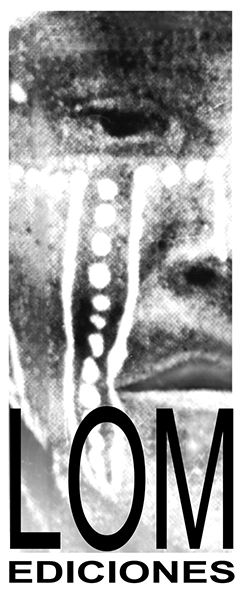![]() Nora Strejilevich
Nora Strejilevich
![]() LOM Ediciones
LOM Ediciones
![]() Chile
Chile
![]() Novel
Novel
 Un día allá por el fin del mundo is a voyage, many voyages, in an unceasing process of departure, arrival, and starting all over again, a flight from a dark country that devours its own children, a roaming about the world that begins in Buenos Aires, where the protagonist, after a week of crackdowns, abuses and violent maltreatment, is sent into exile by the dictatorship in place, forced to take on a road that would eventually lead to Israel, Canada, the United States, France, Greece, Italy, Holland, Spain, Poland, South Africa, Mexico, Colombia, Cuba, Bolivia, Guatemala, Brazil, Paraguay, Chile. The voyages are linked one another by a unique schedule. Every time the protagonist launches herself unto adventure she is aware of an evasion, of having to take a crucial pause. Her premise: giving in to the requirements of pain insofar it provides her with the protective shield of distance. And she will constantly seek it. However, the longed-for escapade never comes to pass, plans seems to fail over and over again; that which is avoided emerges tirelessly beneath unsuspected disguises. Memory refuses to be abandoned. The protagonist of the novel, which simultaneously is and isn’t Nora Strejilevich, attempts to forget the day which inspires the title of this book ("A day near the end of the world"), its main theme, in which her brother Gerardo is imprisoned and forcibly disappeared. By relinquishing her effort of putting things in the past, the acceptance of inescapable pain in memory finally gushes forth.
Un día allá por el fin del mundo is a voyage, many voyages, in an unceasing process of departure, arrival, and starting all over again, a flight from a dark country that devours its own children, a roaming about the world that begins in Buenos Aires, where the protagonist, after a week of crackdowns, abuses and violent maltreatment, is sent into exile by the dictatorship in place, forced to take on a road that would eventually lead to Israel, Canada, the United States, France, Greece, Italy, Holland, Spain, Poland, South Africa, Mexico, Colombia, Cuba, Bolivia, Guatemala, Brazil, Paraguay, Chile. The voyages are linked one another by a unique schedule. Every time the protagonist launches herself unto adventure she is aware of an evasion, of having to take a crucial pause. Her premise: giving in to the requirements of pain insofar it provides her with the protective shield of distance. And she will constantly seek it. However, the longed-for escapade never comes to pass, plans seems to fail over and over again; that which is avoided emerges tirelessly beneath unsuspected disguises. Memory refuses to be abandoned. The protagonist of the novel, which simultaneously is and isn’t Nora Strejilevich, attempts to forget the day which inspires the title of this book ("A day near the end of the world"), its main theme, in which her brother Gerardo is imprisoned and forcibly disappeared. By relinquishing her effort of putting things in the past, the acceptance of inescapable pain in memory finally gushes forth.
ISBN 978-956-00-1147-3
Nora Strejilevich, Un día allá por el fin del mundo (A day near the end of the world) is a tremendously captivating and original novel, both in content and form. Nora Strejilevich’s simplicity in writing brings about joyful reading amidst shimmering and translucent words. Each paragraph cascades an astounding phraseology that modulates different ways of narrating a wide array of affairs involving everyday or uncommon situations and the comings and goings of trivial or interesting characters. Hers is a highly elaborate depiction which establishes an astonishing relation between its world and the reader.
Un día allá por el fin del mundo es un viaje, muchos viajes, un interminable partir y llegar para partir de nuevo, un huir de un país oscuro que devora a sus hijos, un zigzagueo por el mundo que empieza en Buenos Aires, de donde la protagonista es expulsada por la dictadura luego de una semana de detención, abusos y extremos malos tratos, y que sigue en Israel, Canadá, Estados Unidos, Francia, Grecia, Italia, Holanda, España, Polonia, Sudáfrica, México, Colombia, Cuba, Bolivia, Guatemala, Brasil, Paraguay, Chile... Los viajes están ligados a un único itinerario. Cada vez que la protagonista se lanza a la aventura, lo hace pensando que evita algo, que establece una pausa indispensable. Su premisa es que el dolor exige y genera su capa protectora, la distancia. Y la busca. Pero la ansiada fuga no adviene, el plan fracasa una y otra vez: lo que evade resurge con disfraces insospechados. La memoria se niega a ser abandonada. La protagonista de la novela, que es y no es Nora Strejilevich, intenta olvidar el día aquél que es parte del título y motivo central del libro, la fecha de la detención y desaparición forzada de su hermano Gerardo. En algún momento renuncia a su propósito de olvido y acepta el recuerdo doloroso como inescapable.
Nora Strejilevich. Un día allá por el fin del mundo es una novela original, por su contenido y su forma enormemente seductora. Nora Strejilevich usa un lenguaje corriente, sin embargo hace brillar y vuelve profundamente visible las palabras, que causan alegría en la lectura. Cada párrafo de la novela es una sucesión de frases sorprendentes, maneras diferentes de contar acontecimientos cotidianos o extraños, de entradas y salidas de personajes interesantes o triviales.Su relato tiene un alto grado de elaboración, pero al mismo tiempo, una cercanía asombrosa del mundo narrado al lector.

